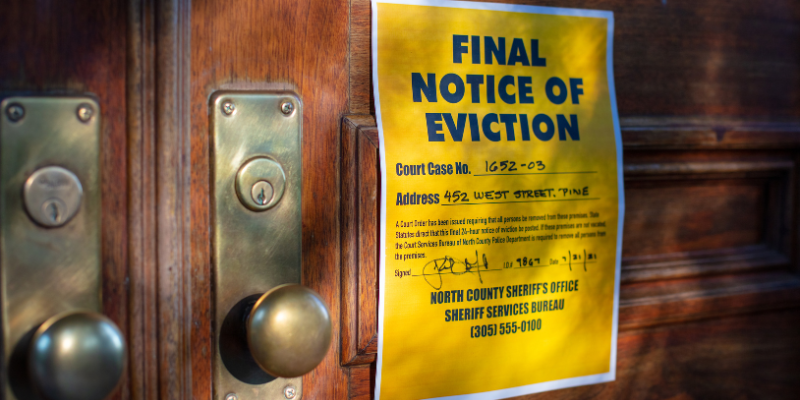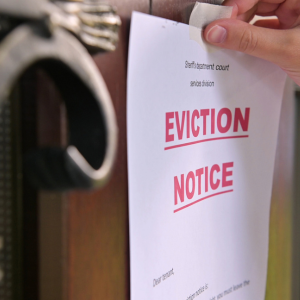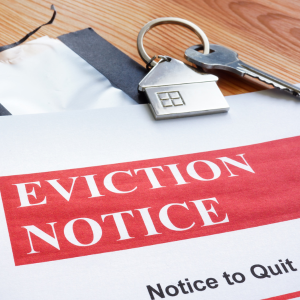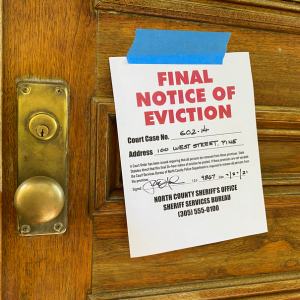
People who own and rent houses in New Orleans, Louisiana, need to know how long it takes to be evicted from a rental property. You can follow the rules and stay out of trouble if you know what to do and when things might take longer than planned. It outlines every step of the removal process and provides information about Louisiana law that is specific to that state. Before you rent, it’s important to know your rights and responsibilities. Bertucci Investment Group is here to help you stay informed, avoid conflicts, and handle challenges calmly. Learn how to be confident and smart if you ever face eviction, so you can protect yourself and make the best decisions.
Key Highlights
- Eviction processes include issuing a notice, filing court documents, and addressing potential tenant appeals, all while adhering to Louisiana’s legal framework.
- Key factors influencing timelines include the complexity of the violations, the responsiveness of the parties, the court’s availability, and external circumstances.
- Common eviction grounds include non-payment, lease breaches, and property damage, which require landlords to follow Louisiana’s legal requirements.
- Eviction notices establish formal timelines, dictate the process efficiency, and require precise legal compliance to ensure validation in court proceedings.
- Proper litigation preparation requires comprehensive documentation, adherence to legal requirements, and strategic clarity from both landlords and tenants.
Understanding the Louisiana Eviction Process
If you own or rent in Louisiana and have never been through the moving process before, it can be hard to understand. It’s essential to understand what might happen and how it could impact the law, as well as the various steps involved. Several factors can affect the time it takes to remove someone from Louisiana. The main steps are talked about and broken down in this book. Are you the owner, and do you want it back? Are you about to be kicked out as a renter? These facts can help you stay on track and prepare.
Key Steps in a Louisiana Eviction
In Louisiana, the process for evicting a tenant is structured to make sure that both the landlord and the tenant are treated fairly. The process begins with the landlord serving the tenant with an eviction notice. This is an important step because it informs the tenant that they have breached the terms of their lease or haven’t paid their rent. The notice period can vary depending on the type of breach, but in most cases, the tenant has five days to rectify the issue or vacate the property. If the problem isn’t fixed after the notice time, the landlord must file a Rule for Possession in the appropriate court. Setting up a court hearing for the eviction case is the next step. Both the landlord and the tenant can make their cases at the hearing.
The court will decide based on the arguments and facts that were presented. This decision is crucial in determining whether an eviction is necessary. A judgment for possession allows the landlord to regain control of the property if the court rules in their favor. This isn’t the end of the eviction process, though. The tenant is generally given an extra time period, usually 24 hours, to leave the property on their own. If the tenant doesn’t leave, the owner has to call a police officer to help enforce the court order. This is the last step in physically evicting the tenant from the property. Louisiana’s landlord-tenant rules ensure that evictions are conducted in a legal and ethical manner, so each step is necessary. Landlords must follow all legal requirements to avoid delays or legal problems that aren’t required. Tenants, on the other hand, should be familiar with these steps to protect their rights and understand their responsibilities during the eviction process.
Factors Influencing the Eviction Timeline

In Louisiana, there are various methods for obtaining an order to remove someone from a dwelling, making each instance unique. Once you know how badly a renter broke the deal, you can kick them out of your house. Small violations can often be easily settled if they are discussed. If the violations are major or if the people are fighting the case, it may take longer. There will be more court steps, that’s why. What makes the time it takes to kick someone out second is how quickly both sides act. Each party (the renter and the owner) must appear in court on time and follow the rules. This might make things go faster. Things take longer and are annoying for everyone when people can’t communicate with each other or miss appointments. Another important factor that affects how long it takes to remove someone is their ability to follow the court’s plan. After going to court, people may have to wait longer for talks and decisions. Now things are going more slowly. It might be harder for owners to rent out their homes again, and for people who need to move quickly to find a new place to live.
There are also times when people can’t get to court on time, like when it’s a holiday, a natural disaster, or a public health issue. It may take longer to eliminate people this way. Laws that require landlords to give renters time to prepare and a chance to react can also prolong the process. The rules should be fair, so both renters and owners should be aware of these things.
Finally, it could take significantly longer to evict the renter if they file an appeal after being found guilty. Laws protect renters because they can ask a court to review a decision if they believe it was made incorrectly. If the renter and the owner are aware of these things, they can plan for potential delays. The lender can ensure that all paperwork is completed quickly and properly, and the renter can be prepared for any issues that may arise with their home. These things will help you make better decisions during the cleanup if you keep them in mind.
Reasons for Eviction in New Orleans
New Orleans has several reasons for evicting a neighbor, and most of the time, it has to do with what they did. It is easier for landlords and tenants to get along when both parties understand the proper reasons for moving out. Here, we delve into the most common reasons landlords initiate the eviction process and how Louisiana’s removal laws address these issues. These specifics can help both landlords and tenants understand the rules more clearly. These rules ensure that everyone is aware of their rights and responsibilities under rental agreements.
Common Grounds for Initiating Eviction
In New Orleans, renters typically initiate the eviction process when they breach their lease, most often by failing to pay their rent. Louisiana law requires landlords to carefully follow the rules, including setting clear grounds and providing renters with sufficient notice. Repeatedly late payments, having pets without permission, or engaging in illegal activities can also lead to eviction, but landlords usually send warnings first to give tenants a chance to rectify the problem. Good documentation and clear communication help avoid misunderstandings and back both sides if disagreements go to court.
Evictions can also occur if tenants cause significant damage to the property or if the landlord decides to remove the rental property from the market, which typically requires 30 days’ notice to the tenant. Tenants can avoid receiving eviction notices when they don’t need to by understanding their lease obligations, maintaining open lines of communication, and staying informed about the law. These actions enhance the relationship between landlords and tenants, reducing the likelihood of disagreements escalating into formal eviction processes.
Understanding Louisiana Eviction Laws
People are being evicted from their homes in New Orleans due to the eviction rules in Louisiana. If you are an owner, these rules protect your property rights. They protect renters from being evicted without just cause. A “Pay Rent or Quit” notice is used when rent is not paid, and a “Cure or Quit” notice is used when the lease is breached. Therefore, landlords must initiate the process with the correct type of notice. Let renters know what’s wrong with the notice and give them a good chance to fix it. The notices must also follow the rules for legal service. Landlords and renters will be able to communicate more easily with each other due to this planned chat.
Renters must file a Rule for Possession if they receive notice and fail to take any action within the specified timeframe. This tells the court to meet and hear the case. Judges examine the information from both sides to ensure that decisions are fair and comply with the law. It takes longer, but renters can fight decisions they believe are unfair. Following this will help protect due process more. People who own or rent property should always be aware of the most up-to-date laws, as local or emergency rules may supplement Louisiana law. If you know these things, you can handle eviction cases faster and better, and you won’t make any mistakes that could hurt your case. Contact us for guidance and support throughout the entire process.
Navigating the Eviction Notice

Obtain or distribute a letter of eviction. In New Orleans, this is a crucial part of the process of being kicked out. That’s why it starts the legal process. The next few steps are crucial and will have a significant impact on the entire eviction process. Here, we’ll talk about what eviction letters mean in the eyes of the law and what makes a good warning. In Louisiana, there are specific rules governing the issuance, receipt, and response to warnings. This helps renters and managers follow those rules.
How to Properly Serve an Eviction Notice
To serve an eviction notice correctly in New Orleans, it is essential to follow the rules closely and exercise extreme care. Lenders may have to pay more money and deal with additional problems when the moving process takes too long due to poor service. First, it’s essential to determine if the renter has breached the lease by moving out, failing to pay rent, or violating the terms outlined in the lease. Louisiana law allows people to send various types of warnings. Most of the time, renters are given five days’ notice if they are unable to pay their rent on time. They have until then to pay the late rent or vacate the house.
It’s just as important how the word gets across. You can give the renter this notice in person or post it somewhere they can see it, such as on the front door. It’s the law that you need proof that the message you sent was received. In that case, certified mail is your proof. If the courts need to verify that the warning was sent correctly, record the date, time, and method of delivery. If renters don’t do these things, they could lose their cases. They would have to start the process all over again, which would prolong the time it takes. We buy houses in New Orleans, LA, and we understand the importance of proper notice and documentation in protecting your rights.
It’s easier for tenants to address problems if the letter clearly states its purpose and identifies specific lease violations. People will talk to you more if you’re honest, and the courts won’t get involved. If the renter doesn’t leave by the due date, the owner can file a Rule for Possession in the right court in New Orleans. This is how the court process will start. Just follow the law to protect your rights, stay calm, and avoid the stress and financial burden that come with being evicted from your home.
Impact of the Notice on the Eviction Process in New Orleans, LA
A letter of resignation is a crucial part of leaving a position. It marks the beginning of the process and informs landlords of the timeframe within which they must respond to the landlord’s claims. The type and nature of the warning given determine how long the process takes, how well it works, and its legal soundness. It is crucial to adhere strictly to Louisiana law. When renters receive the letter, it’s clear what the claims are and whether they can expect things to improve or settle down.
You have five days from the date you receive the letter to pay the rent or address any other issues with the lease. Renters have time to fix the problem, discuss the issue, or prepare to move out on their own. If someone breaks the lease, a clear and well-written notice can help them be more receptive and facilitate a productive conversation. This could help them avoid long and expensive court procedures. Now is a crucial time for both sides to act and attempt to reach a mutually beneficial agreement.
For landlords, proof of due process is a warning that was given the right way. You are less likely to be kicked out for not following the rules, and any future court case will be more favorable as a result. If you own more than one home in New Orleans, this is particularly important because it demonstrates your responsibility and adherence to the rules. The notice exacerbates the situation for renters and prompts them to act quickly in a manner that benefits everyone. Lenders and renters can evict a tenant more quickly and legally if they understand the legal and strategic implications of the letter.
The Role of a Court Hearing
Most of the time, getting kicked out of a house in New Orleans means going to court. It significantly alters the outcome of the case. At this point, the owner and the renter each present their case, and the court makes a decision that could lead to a finding of possession. In this step, we ensure that everything is fair and in order. Both sides need to do a lot of work to clarify their rights and goals in this meeting. Because of this, the judge will ultimately change his mind about the order.
Preparing for an Eviction Lawsuit

A lot of work needs to be done by both renters and owners before they go to court to be evicted. They need to gather proof and learn how the court system works. The first thing owners should do is carefully record all lease agreements, even those that have been broken after a proper warning has been given. They maintain clear records of who broke the lease or failed to pay, and these individuals are easily identifiable on the lists. These are very important if you want to change what the court said. Don’t tell anyone ahead of time, or keep good records. If you don’t, the case may be pushed back or dismissed.
Renters should also be aware of their rights and potential defenses, such as not receiving sufficient notice, the landlord breaching the lease, or issues with the rental unit that render it uninhabitable. The fact that you paid the rent is proof. There are many types of proof that you can use. You can get help with your case from a private lawyer or a legal aid group. Renters will be able to present stronger cases and gain a better understanding of how the court system works. Their case will be better if they pay attention to the news and do something.
In New Orleans, the courts operate as follows: there are requests, hearings, evidence, and possibly resolution talks or hearings. These are things that both sides should learn. People can make their plans better and be more ready if they know what the plan is and if there are any delays. You will perform better in court and in negotiations if you prepare. This may help you resolve issues before you go to court. Do what the law says and hire a lawyer for each side if you want to get rid of a roommate quickly. Things are less likely to go wrong and cause stress as a result.
If you’re looking to sell your home for cash in Gretna, LA, New Orleans, and surrounding Louisiana cities. Understanding these legal steps can also help you navigate the process more smoothly.
No matter your situation, Bertucci Investment Group is here to make selling your home simple, fast, and stress-free. We provide fair cash offers, quick closings, and caring, professional service so you can move forward with confidence. Call us today at (504) 920-4747 to get your offer!
FAQs:
What are the key steps in the Louisiana eviction process?
The eviction process in Louisiana begins with the landlord issuing an eviction notice to the tenant, followed by filing a Rule for Possession in court if the tenant does not comply. A court hearing is held to resolve the case, where a judgment for possession may be granted to the landlord, allowing them to regain control of the property.
What factors influence the eviction timeline in Louisiana?
The timeline of the eviction process in Louisiana can be affected by various factors, including the complexity of lease violations, the responsiveness of both parties, court availability, and any external circumstances such as holidays or emergencies.
What are common grounds for eviction in New Orleans, LA?
Common grounds for eviction include non-payment of rent, lease violations, property damage, and other terms outlined in the lease agreement. Each case requires landlords to follow Louisiana’s legal protocol to execute an eviction lawfully.
How should landlords and tenants prepare for an eviction court hearing?
Landlords should document lease agreements and tenant violations meticulously. Tenants should gather evidence supporting their defense, such as correspondence or payment receipts. Both parties should understand court procedures and consider seeking legal advice.
Why is the eviction notice important in the Louisiana eviction process?
Issuing a proper eviction notice is crucial as it marks the beginning of formal eviction proceedings. It sets a timeline for tenants to remedy violations and establishes legal groundwork for any subsequent court actions. Proper notice ensures compliance with Louisiana laws and protects the rights of both parties.
Helpful New Orleans Blogs Articles
- Sell Your New Orleans, LA, Multifamily or Small Apartment Building
- 4 Fun New Orleans, LA, Neighborhoods for Investors
- Selling a House Without a Real Estate Agent in New Orleans, LA
- 5 Common Mistakes When Selling Your New Orleans, LA, Home
- Fixing Up a House to Sell in New Orleans, LA
- Sell House Without a Realtor in New Orleans, LA
- Sell a House When Going Through a Divorce in New Orleans, LA
- Can I Sell My House if It Is in Foreclosure in New Orleans, LA?
- Can You Sell a House With a Lien in New Orleans, LA?
- How to Sell an Investment Property in New Orleans, LA
- Capital Gains Tax After Selling a Home in New Orleans, LA
- Selling a House to a Family Member in New Orleans, LA
- How Does Selling a House with a Mortgage Work in New Orleans, LA?
- How Long Does an Eviction Process Take in New Orleans, LA?
- How Much Equity Do I Need to Sell My House in New Orleans, LA?

